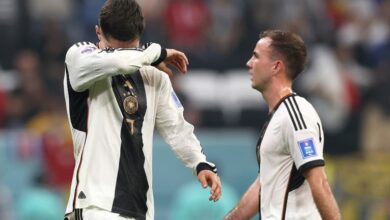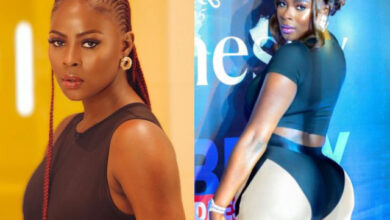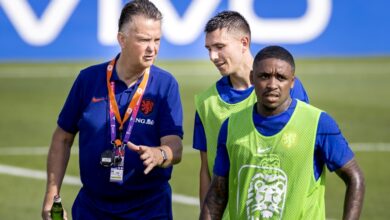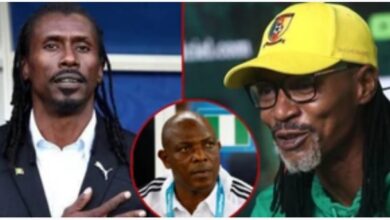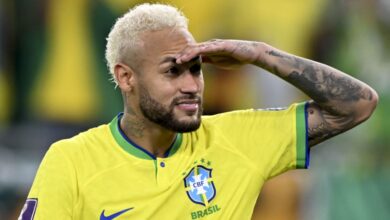“Proud” Surinamians support Dutch World Cup athletes
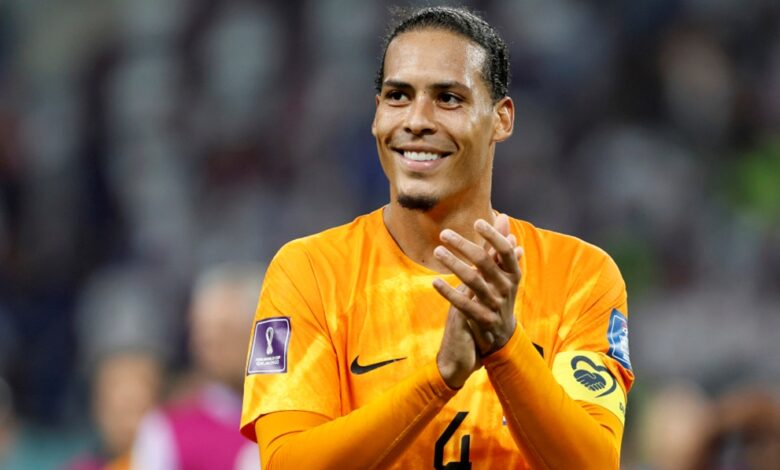
The amount of Dutch players in Friday’s World Cup quarterfinal who have ties to the former colony in South America is inspiring pride from the Netherlands and Suriname.
Two young friends of Surinamese descent practice free kicks on a field beneath the Amsterdam apartment buildings where they grew up and harbor dreams of donning the renowned orange jersey of the Netherlands.
“We’re people of colour ourselves. It’s good that people of colour have been so successful. We’re proud,” says Nigel Marengo, 18, a junior player for Heerenveen, a club whose first team is in the Eredivisie.
They look forward to Dutch athletes like Virgil van Dijk, who was born in the Dutch city of Breda to a Dutch father and a Surinamese mother; Denzel Dumfries; and Xavi Simons, whose father is Surinamese and whose mother is from Aruba, a Caribbean island that is a part of the Kingdom of the Netherlands.
On Friday, Marengo and his friends will watch the “Oranje” take on Argentina. He predicts that the game will be difficult but winnable, largely because of the imposing Van Dijk in defense.
Marengo continues, “I’m glad he chose to play for the Netherlands instead of Suriname, the tiny country on the Caribbean coast that is ranked 139 by Fifa.
Although it “drags down Suriname in terms of football,” his 18-year-old friend Divayo Olf says, “they were all born here or grew up here and started their careers here, so I understand their choice.”
Footballing greats with Surinamese ancestry have a long history in the Netherlands, from Ruud Gullit and Frank Rijkaard in the 1980s to Clarence Seedorf and Edgar Davids in the 1990s.
‘HISTORICAL CONNECTION’
But that also represents the complicated history that the Dutch are still wrangling with as the rulers of a number of colonies, including Suriname, which gained independence in 1975.
The Sportcafe Munder in Paramaribo, the capital of Suriname, has two enormous TV screens mounted on its wall, a Suriname flag flying in the center, and Dutch flags adorning the walls and ceiling.
“I have been a fan of the Netherlands since 1978, because I grew up there… And boys with a Surinamese background playing, that also plays a role,” says owner Ramesh Jagesar.
The Netherlands flags will be placed on cocktail sticks with the Dutch meatball appetizers known as “bitterballen” for the game on Friday.
However, he continues, “There are groups that are really against the Netherlands; they would rather support Brazil or Argentina.”
Former physician Ruben del Prado declared his support for the Dutch team.
“I love the Netherlands but my heart is in Suriname… there is a natural historical connection between them,” he said.
Since he belongs to the Argentina Fan Club of Suriname, Micky van Leeuwaarde will don light blue instead of orange.
“The generation of football players with Surinamese roots means nothing to me,” he said, explaining that he was born in 1978 when Argentina beat Netherlands in the World Cup final, loved Maradona and had been a fan all his life.
‘MAKES ME PROUD’
A father and son reminisce the heyday of Dutch football and the significant roles players of Surinamese descent have played in it just a corner kick away from Amsterdam’s renowned Ajax stadium.
“It’s important that the whole of Dutch society is represented in the national football team,” says Giovanni Qureshe, 21, behind the counter of his family’s Surinamese restaurant, P&G Roti.
“That’s the case under the current manager Louis van Gaal. I am very proud that we, the Surinamese, are also part of the Netherlands team.
“And we’re doing very well, I hope we’ll be world champions!”
Racism persists in a society where far-right parties enjoy sizable support despite the multicultural image of both the Netherlands and its football teams.
As one of the few black players, Gullit, who helped the Netherlands win their only major trophy when they won the European Championships in 1988, claimed to have faced racial abuse.
But has claimed that since football has become more inclusive, things have changed.
Near the Ajax stadium, Urbian Fitz-James runs a shop selling products from his native Suriname but “will always have a link with the Netherlands.”
“When I see a Surinamese kid playing in the national team, of course it makes me proud,” he says.
A saleswoman in the shop, Xafiera Schipper, 34, believes that players from Suriname, where her parents were born, “would do better to play for their own country”.
But she adds: “That would mean the Dutch team wouldn’t be so strong any more.”
For more update, always visit dailygam.com






